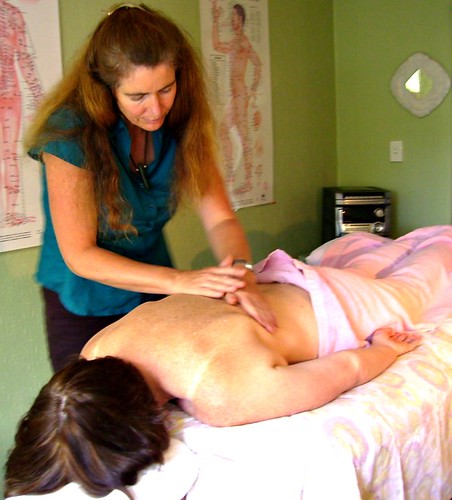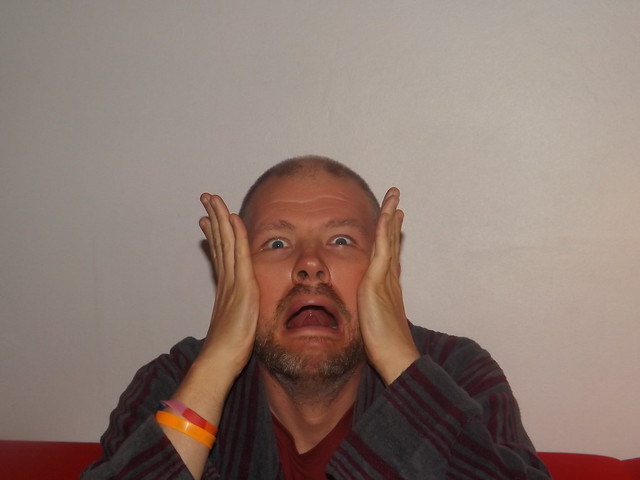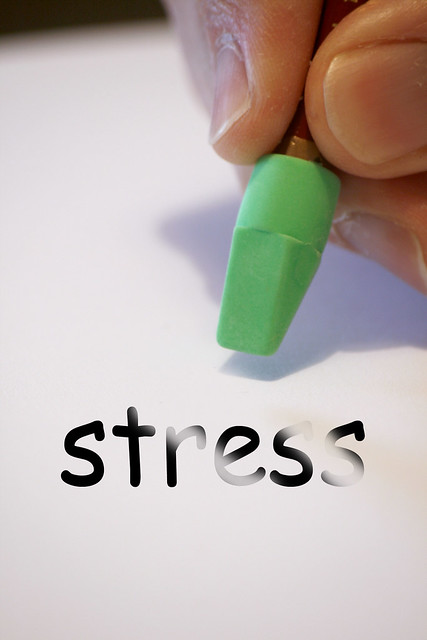 Your general outlook on life has the most to do with your happiness. You can discover your view of yourself and the world around you by paying attention to the conversation that goes on in your head. Dr. Bordenave suggests that when you encounter setbacks, you shift your perspective to one of not a woes-me to “this is an inconvenience, but I can cope”.
Your general outlook on life has the most to do with your happiness. You can discover your view of yourself and the world around you by paying attention to the conversation that goes on in your head. Dr. Bordenave suggests that when you encounter setbacks, you shift your perspective to one of not a woes-me to “this is an inconvenience, but I can cope”.
Category Archives: alternative medicine
Staying at Peace
 Maintaining an inner peace is just as important to your health and wellness as the food choices you make. Learning to focus your mind on goodness will bring healthy benefits to your life; Peace and wellness are a healthy partnership. Dr. Bordenave suggests that you focus your mind on positive thoughts and you won’t be as inclined to overindulge or over-react.
Maintaining an inner peace is just as important to your health and wellness as the food choices you make. Learning to focus your mind on goodness will bring healthy benefits to your life; Peace and wellness are a healthy partnership. Dr. Bordenave suggests that you focus your mind on positive thoughts and you won’t be as inclined to overindulge or over-react.
Cooler Weather
 The cooler weather often brings arthritis aches and pains. Dr. Jorge Bordenave at Miami Integrative Medicine can show you natural remedies and exercises to help relieve the effects of this sometimes-debilitating disease. Give us a call today.
The cooler weather often brings arthritis aches and pains. Dr. Jorge Bordenave at Miami Integrative Medicine can show you natural remedies and exercises to help relieve the effects of this sometimes-debilitating disease. Give us a call today.
Happy Thanksgiving
 Dr. Jorge Bordenave and all of his staff want to wish you and your family the best of Thanksgivings as we each gather together with our friends and family to give thanks for all of our blessings.
Dr. Jorge Bordenave and all of his staff want to wish you and your family the best of Thanksgivings as we each gather together with our friends and family to give thanks for all of our blessings.
Best of Both Worlds
 When modern medicine and traditional medicine are used together to treat a patient, the patient benefits from both methods, and it produces better results. Contact Dr. Bordenave’s office and see how the partnership can benefit you.
When modern medicine and traditional medicine are used together to treat a patient, the patient benefits from both methods, and it produces better results. Contact Dr. Bordenave’s office and see how the partnership can benefit you.
The Flip Side of Anti-depressants
 Anti-depressants have their evident benefits (fight depression) and have helped a lot of people over the years. However, everything has a side effect and here is a look at what they are not telling you about anti-depressants.
Anti-depressants have their evident benefits (fight depression) and have helped a lot of people over the years. However, everything has a side effect and here is a look at what they are not telling you about anti-depressants.
What is Integrative and Alternative Medicine?
 Most people have heard the terms “complementary medicine,” “alternative medicine,” and “integrative medicine.” What do they all mean? For one, “complementary medicine” and “integrative medicine” are different ways to refer to the same thing. These terms refer to medicine outside of the mainstream, or Western, medicine. Integrative medicine works together with traditional medicine. On the other hand, “alternative medicine” uses an approach that is non-mainstream and in place of conventional medicine.
Most people have heard the terms “complementary medicine,” “alternative medicine,” and “integrative medicine.” What do they all mean? For one, “complementary medicine” and “integrative medicine” are different ways to refer to the same thing. These terms refer to medicine outside of the mainstream, or Western, medicine. Integrative medicine works together with traditional medicine. On the other hand, “alternative medicine” uses an approach that is non-mainstream and in place of conventional medicine.
Alternative Medicine
The National Institutes of Health (NIH) states that alternative medicine is a diverse group of health care and medical systems, practices and products that are not usually used in conventional medicine. They are medicines and practices that have not been proven by science to be effective and are based mostly on anecdotal evidence or rather, word of mouth.
Alternative medicine is widely based on the use of herbs, other natural elements, body manipulation and the use of the mind as a component that can be used to prevent and cure illness. These methods have been used for centuries in traditional medicine, such as that used by the Chinese.
Acupuncture, chiropractic and massage are often considered alternative medical procedures, as there is no scientific evidence that they are effective. However, conventional medicine is beginning to see these as effective, and they are becoming accepted as more mainstream. In fact, many alternative treatments and medications once considered alternative are now considered mainstream. In fact, many traditional medicines have led to the discovery of conventional medicines.

The use of herbs, spices and other natural ingredients, such as St. John’s Wort for depression, Echinacea for boosting immunity, and ginger for pain and nausea, have been used by millions and have been found helpful. However, the use of foods as curatives has been controversial. Although good nutrition is important to health, the idea that one or two particular foods can cure an illness is not accepted.
Osteopathy, is a non-invasive, drug-free, manual practice that focuses on creating health and well being through the musculoskeletal framework by using manual manipulation that affects the nervous system and lymphatic system.
In general, alternative therapy is the use of natural substances and non-invasive methods to deal with illness, whether it is lack of sleep, skin disorders, or cancer. True alternative medicine is not widely used.
Integrative Medicine
Integrative medicine is a combination of alternative and conventional medicine. Mind and body wellness, natural substances and Western medicine are used together to obtain optimal health and disease control. It is also sometimes referred to as holistic medicine. This type of health care combines Western medicine with the use of natural remedies, plus the advocacy of mind-body wellness.
Over the past decade, the use of integrative medicine has become more widespread and accepted by medical professionals and the general public.
Natural products sold as dietary supplements such as herbs (botanicals), vitamins, minerals and probiotics are becoming more accepted by mainstream medicine and are now often prescribed as part of a physician’s instructions to a patient.
Fish oil/omega 3 is a supplement often suggested for use in combination with medication for heart disease and high cholesterol. Probiotics are now often suggested for the treatment of mild intestinal disorders.
Integrative medicine strives to include the best that science can provide, while at the same time, using natural and non-invasive methods to treat illness.
 Nutrition is seen as a great part in achieving health and wellness. A diet that meets the nutritional needs of the body can help to maintain health and provide an excellent platform for fighting disease. Exercise such as Tai Chi and yoga are often recommended because of the benefits they provide to the body, as well as the calming, positive effects they have on the mind. Meditation can also be useful for focusing and relaxing the mind.
Nutrition is seen as a great part in achieving health and wellness. A diet that meets the nutritional needs of the body can help to maintain health and provide an excellent platform for fighting disease. Exercise such as Tai Chi and yoga are often recommended because of the benefits they provide to the body, as well as the calming, positive effects they have on the mind. Meditation can also be useful for focusing and relaxing the mind.
Obtaining a healthy mind and body are seen as an integral part of integrative medicine. A healthy mind and positive attitude toward life can have a great effect upon the body and how one feels.
Before you begin on any medical journey, make sure you talk with your physician and provide all of your medical information so that he/she can recommend the best course of action for you. Dr. Bordenave is located in Coral Gables and is happy to serve the south Florida area, including Miami and West Palm Beach. Give us a call at 305 446-2444 to schedule an appointment.
Sources: http://nccam.nih.gov/health/whatiscam
http://en.wikipedia.org/wiki/Alternative_medicine
http://www.medicalnewstoday.com/releases/70381.php
http://www.ncbi.nlm.nih.gov/pubmed/11739043
Published by Axiom Health Care Marketing
Chia Seeds: The Next Best Thing in Healthy Living
 In today’s fast paced world people are always looking for new ways of living healthier through watching what they eat. With recent trends in 2013, Chia seeds are becoming popular for their numerous health benefits as explored in this article.
In today’s fast paced world people are always looking for new ways of living healthier through watching what they eat. With recent trends in 2013, Chia seeds are becoming popular for their numerous health benefits as explored in this article.
A Four-Step Guide to Stress Management
 No one can ever be immune to stress, but what differentiates us in these moments is the way we deal with the stress. The basic idea behind dealing with stress stems is your ability to know when you are stressed and what is stressing you (often called the stressor). Being under stress frequently can hamper your health and wellness.
No one can ever be immune to stress, but what differentiates us in these moments is the way we deal with the stress. The basic idea behind dealing with stress stems is your ability to know when you are stressed and what is stressing you (often called the stressor). Being under stress frequently can hamper your health and wellness.
What is Stress?
Simply put, stress is the reaction from our body when demands are made on it. Stress is not only caused by bad experiences in life, but good experiences as well. From a biological point of view, when stressed, the body releases certain chemicals into the blood stream and they provide more energy and strength to the body. This energy can be put to good use if the stress is originating from a physical danger, however they can be harmful if the stressor is of an emotional nature and can cause health problems such as heart disease when the stress is prolonged or occurs often.
Identifying Stress
The initial step in stress management is identifying the cause. More often than not, it is not as easy as it sounds because stressors are not always obvious. There are three types of people in terms of how they relate to their stress.
- Temporary – This individual often assumes that the stress is temporary and is a result of the particular distinct circumstance they are currently in, e.g. having many things to do at the same time.
- Stress as a part of life – This individual associates stress with a certain aspect of their life. For example, they may assume they are only stressed when they are at work.
- Blaming stress on others – This particular individual always finds a way to blame others for the stress they maybe going through at that particular point in time.
Here, you should be able to identify into which category you fall. Until you are able to identify your stress and accept what you are doing, you will never be able to control it.
Step 1 – Avoiding Unnecessary Stress 
Although avoiding stress is not something you can do all the time, we can avoid many stressors in our everyday lives. First and foremost, you need to master your ability to say no. This means you should know your limits in terms of how much responsibility you can take on. Avoid people and conversations that you know will stress you.
Step 2 – Turning the Tables
Although stress can’t always be avoided. If you can’t avoid the situation, try and alter it for the greater good. Analyze the problem and see what you can do so that you are not faced with the same problem yet again. Sometimes you may want someone to change their behavior, but you have to be prepared to make changes to your own behavior in order to make it work. Have confidence when faced with problems, take them by the horn and you will feel more in control – and less stressed. In addition, learn to manage your time better; not being late all the time is an easy way to reduce stress.
Step 3 – Becoming Adaptive
Steps 1 and 2 may not be applicable to all situations so sometimes you need to adapt. If you are not able to change the situation, then be ready to change yourself to fit it. Take a positive mindset about the situation. Accept that you can do nothing to change it and work with it. Also, trying to be perfect is a huge stressor for many people. No one can be perfect all the time. In some situations, it is okay to adjust your standards and make them more realistic in order to reduce stress and complete the task at hand.
Step 4 – Getting Help
If your attempts at controlling your stress have not been as successful as you would like, there are other ways and alternative treatments available. Alternative medicine can provide ways to calm your stress and offer better wellness. Alternative therapy and holistic medicine such as the use of acupuncture, diet, and herbal remedies can be part of an integrative medicine plan created in conjunction with your general internal medicine doctor or general practitioner.
With these steps, stress can be limited to a less frequent event. When dealing with any complementary medicine plan it is important to provide all of your medical information to those who will be treating you. Always check with your regular physician before starting any new medical regimen, natural or otherwise.
Published by Axiom Health Care Marketing
Our Newsletter
 Be informed on what is happening in the world of Miami Integrative Medicine by reading and then subscribing to our newsletter.
Be informed on what is happening in the world of Miami Integrative Medicine by reading and then subscribing to our newsletter.
